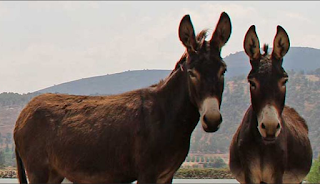Toughening enforcement policies against animal rights abusers, the Knesset unanimously approved an amendment to the Animal Welfare Law in a second and third reading.
Among the major changes to the law are increasing maximum prison sentences for abusers from three to four years and enabling fines of up to NIS 226,000.
Other provisions of the amendment include the expansion of an existing ban on live tissue cutting for cosmetic purposes, as well as for tattooing and other harmful practices. The bill also imposes a ban on killing animals in non-euthanasia circumstances.
Municipal dog shelters are now required to spay and neuter their animals prior to giving them away for adoption.
With regard to the abandonment of animals, the law will be applied not only to the owners of the animal in question but also to any person who is holding that animal regardless of ownership. The bill also enables authorities to confiscate an animal that they suspect will likely become the victim of abuse.
The bill also singles out the responsibility of the senior executives in a corporation – such as a slaughterhouse – that handles animals, by obliging these individuals to do everything in their power to prevent abuse. If such executives failed to prove beyond doubt that they took all possible measures to stop the abuse, they could be fined doubly.
Although the bill was passed in its final form, legislators agreed that additional regulations currently in dispute would eventually be enacted.
Source: The Jerusalem Post


